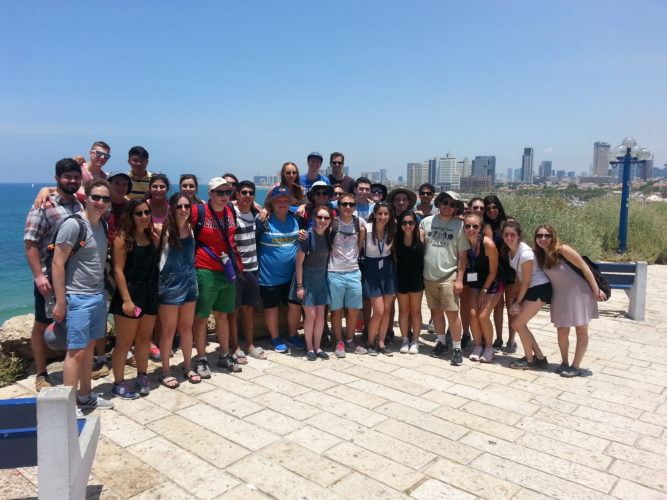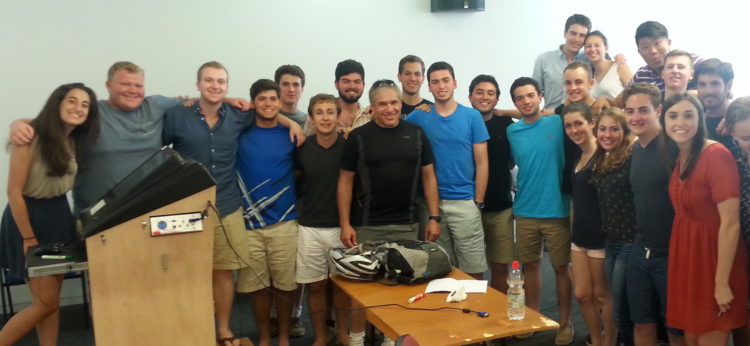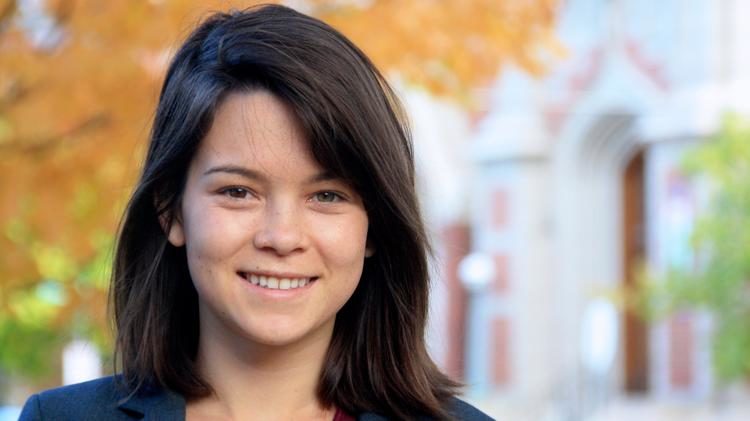I have never heard of anyone using love and business in the same sentence unless they were saying that they either loved or didn’t love business. However over the past three days I have heard two successful Israelis make the analogy between love and different aspects of business. Listening to Uri Levine, the founder of Waze, and Ofer Hacohen, an AT&T innovation coach create these analogies, made me think about business in a different way.
Guest blogger: Jackie is a sophomore at Washington University in St. Louis
When Uri related business to love, he talked about falling in love with an idea. You have to choose one from many, but once you choose it, you know that it’s the right one. This process takes time, it doesn’t just happen instantaneously. Then once you know that you’re in love, you’ll start sharing your idea with others hoping to get their approval. If they don’t like it, you may disengage with them to pursue your love. And sometimes, you will be wrong about being in love, so you just keep going until you find what’s right for you.
After hearing this foreign concept on Sunday, I was surprised to hear a similar analogy from Ofer on Tuesday. He spoke about how finding an investor in your company is like looking for a spouse. Initially, there is the first impression, which is extremely important. If you were on the marriage track like he was, you’d start with a first impression, and if someone makes a good first impression, then you would want to get to know the person. However it is common to get cold feet when moving forward. This is overcome by building a feeling of trust, something that has been emphasized numerous times during our company visits.
I thought this was very interesting not only because it was something that I had never heard of before, but also because I learn best when I am able to relate new ideas to things that I already know. These comparisons helped me to better understand the process of creating a new idea and what it’s like to try to find investors or financial supporters of your product. Also, I think these comparisons speak a lot to the culture of Israelis. They are a country of fun-loving people who strive to enjoy life. As they compare their day-jobs with love, it shows that they truly enjoy what they do.





 I found the Microsoft Ventures program particularly interesting because it is a program that pairs a startup with a mentor company in order to help the business grow. This semester, I did a presentation on Arch Grants, and had the pleasure of learning about their entrepreneurial competition. Just as Microsoft Ventures aims to foster the entrepreneurial spirit of Israel, Arch Grants aims to do the same for St. Louis. Just as Arch Grants funds a number of companies located in T-Rex, a center for entrepreneurs to collaborate, both Israeli accelerators give different entrepreneurs a physical space to exchange ideas.
I found the Microsoft Ventures program particularly interesting because it is a program that pairs a startup with a mentor company in order to help the business grow. This semester, I did a presentation on Arch Grants, and had the pleasure of learning about their entrepreneurial competition. Just as Microsoft Ventures aims to foster the entrepreneurial spirit of Israel, Arch Grants aims to do the same for St. Louis. Just as Arch Grants funds a number of companies located in T-Rex, a center for entrepreneurs to collaborate, both Israeli accelerators give different entrepreneurs a physical space to exchange ideas.





